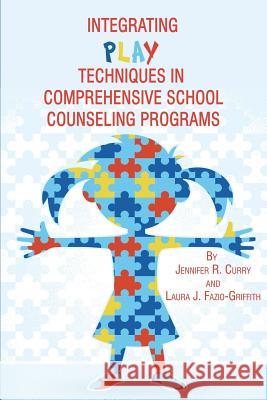Integrating Play Techniques in Comprehensive Counseling Programs » książka
Integrating Play Techniques in Comprehensive Counseling Programs
ISBN-13: 9781623963040 / Angielski / Miękka / 2013 / 400 str.
Integrating Play Techniques in Comprehensive Counseling Programs
ISBN-13: 9781623963040 / Angielski / Miękka / 2013 / 400 str.
(netto: 245,00 VAT: 5%)
Najniższa cena z 30 dni: 254,63
ok. 30 dni roboczych.
Darmowa dostawa!
Play therapy interventions are critical elements of providing responsive services within the context of comprehensive school counselling programmes. However, many school counsellors are not trained in the use of play therapy techniques during their graduate training programs as Play Therapy is not a required course based on standards set by the Council for Accreditation of Counseling and Related Education Programs (CACREP) (2009). Indeed, while there are over 400 school counselling programs in the U. S., there are only 11 certified play therapy training centres. Even more critically, school counsellors may not know which play therapy approaches and interventions are evidenced based for specific childhood concerns (e. g., selective mutism, social skills deficits, parent deployment).
Play therapy is a structured, theoretically-based approach to counselling that builds on the normal communicative and learning processes of children as they may not have developed the complexities of language to accurately express their concerns (Carmichael, 2006; Gil, 1991; Landreth, 2002; O'Connor & Schaefer, 1983). Further, children who are most in crisis may be the ones who need play concepts integrated in counselling; yet, many school counsellors are unprepared to provide these vital resources. The focus of this book is on various play techniques and the application of various play therapy theories (i. e., Child Centred Play Therapy, Solution Focused Play Therapy, Cognitive Behavioural Play Therapy) within comprehensive school counselling programmes, addressing various childhood concerns, prevention and intervention. Each chapter offers vignettes, a literature review of a specific childhood concern (e.g., homelessness, separation anxiety), pragmatic interventions for the school environment, and a case study to demonstrate application of techniques.











